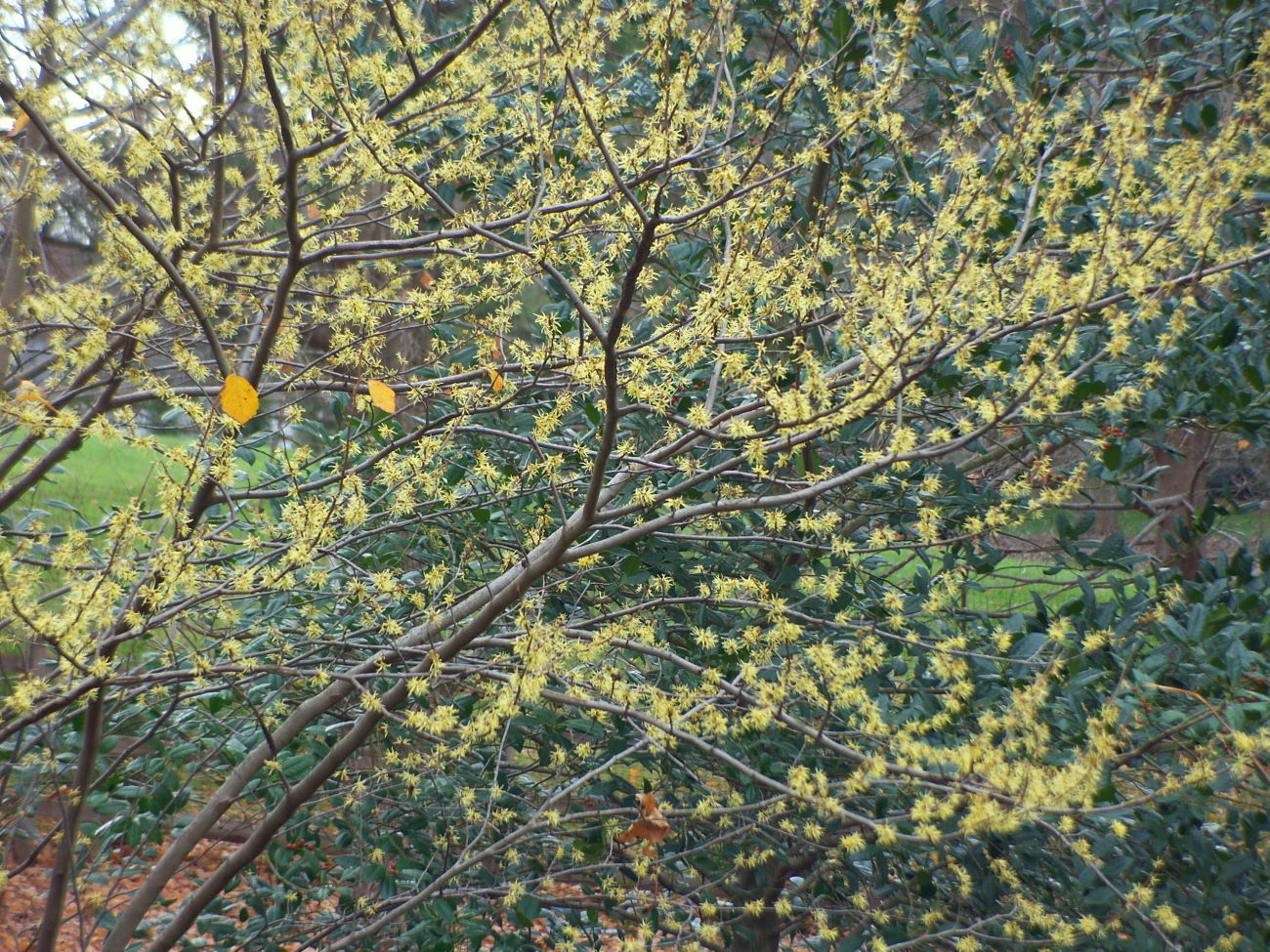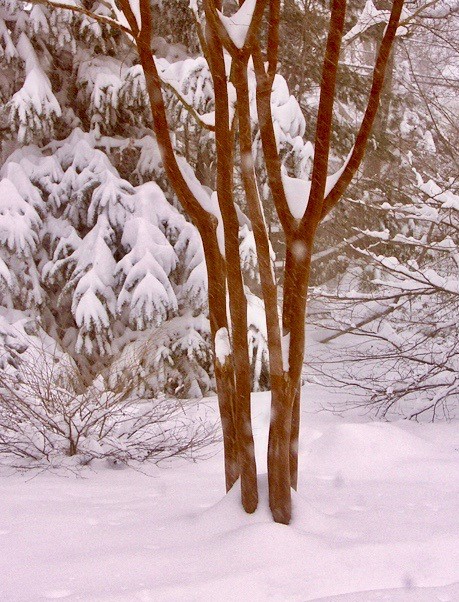Every season in the garden has its particular delights. Winter is no exception. Perhaps the pleasures of the cold months are even more prized because they are many fewer in number. As with every other part of the year, winter’s fleeting glories bring moments to be savored before they pass into memory.

Some perennials and deciduous shrubs go so gracefully into dormancy, that they might be considered at their peak after frost. Among these are the grasses, especially broom sedge (Andropogon virginicus) which spends the cold months a stippled orange. Hakone grass (Hakonechloa macra) is showy the entire winter when its cascading almond-colored foliage serves as a bright foil to evergreens.

A shrub that takes an especially graceful exit from the growing season is winter hazel (Corylopsis pauciflora). Its leaves pass gently into mid-winter, coloring the softest ginger before finally dropping in anticipation of its coming yellow blooms.

Some plants ease us into winter by blooming at its early edge. This year, American witch hazel (Hamamelis virginiana) bloomed from November through December. Mahonia followed, still holding on to its dangling yellow flowers in January.
Left: Coral bark maple (Acer palmatum ‘Sango-Katu’). Right: Natchez crape myrtle (Lagerstroemia x ‘Natchez’).
Some plants defy the very worst that mid-winter bestows by becoming even more attractive in the teeth of adversity. The limbs of coral bark maple (Acer palmatum ‘Sango-Kaku’) will glisten brilliantly after an ice storm. The trunks of the Natchez crape myrtle (Lagerstroemia x ‘Natchez’) become even more spectacular against the snow, turning what might be a drab scene into a winter fairyland.
As winter ebbs, edgeworthias produce their fragrant yellow and orange blossoms despite February’s temperatures. When edgeworthia blooms in consort with sweet box (Sarcococca hookeriana), whose tiny flowers are powerfully scented, the entire garden is perfumed.
And then, before you know it, the winter aconites and hellebores appear. Winter is over. The year’s peaceful hiatus in the growing season has exhausted its few but splendid and very memorable delights.

